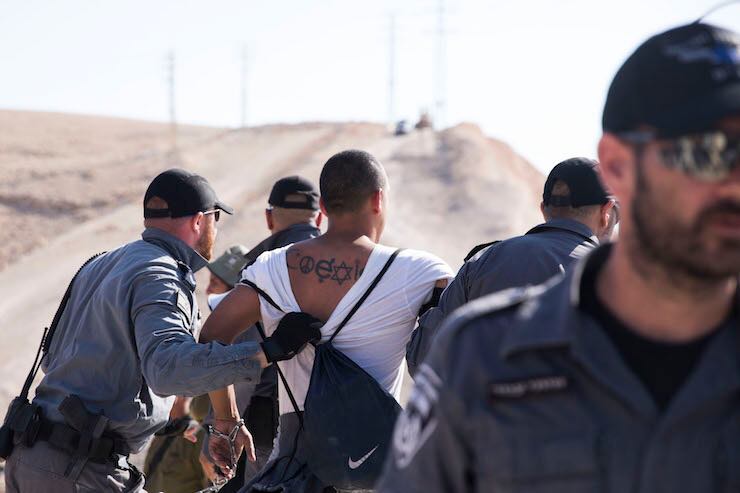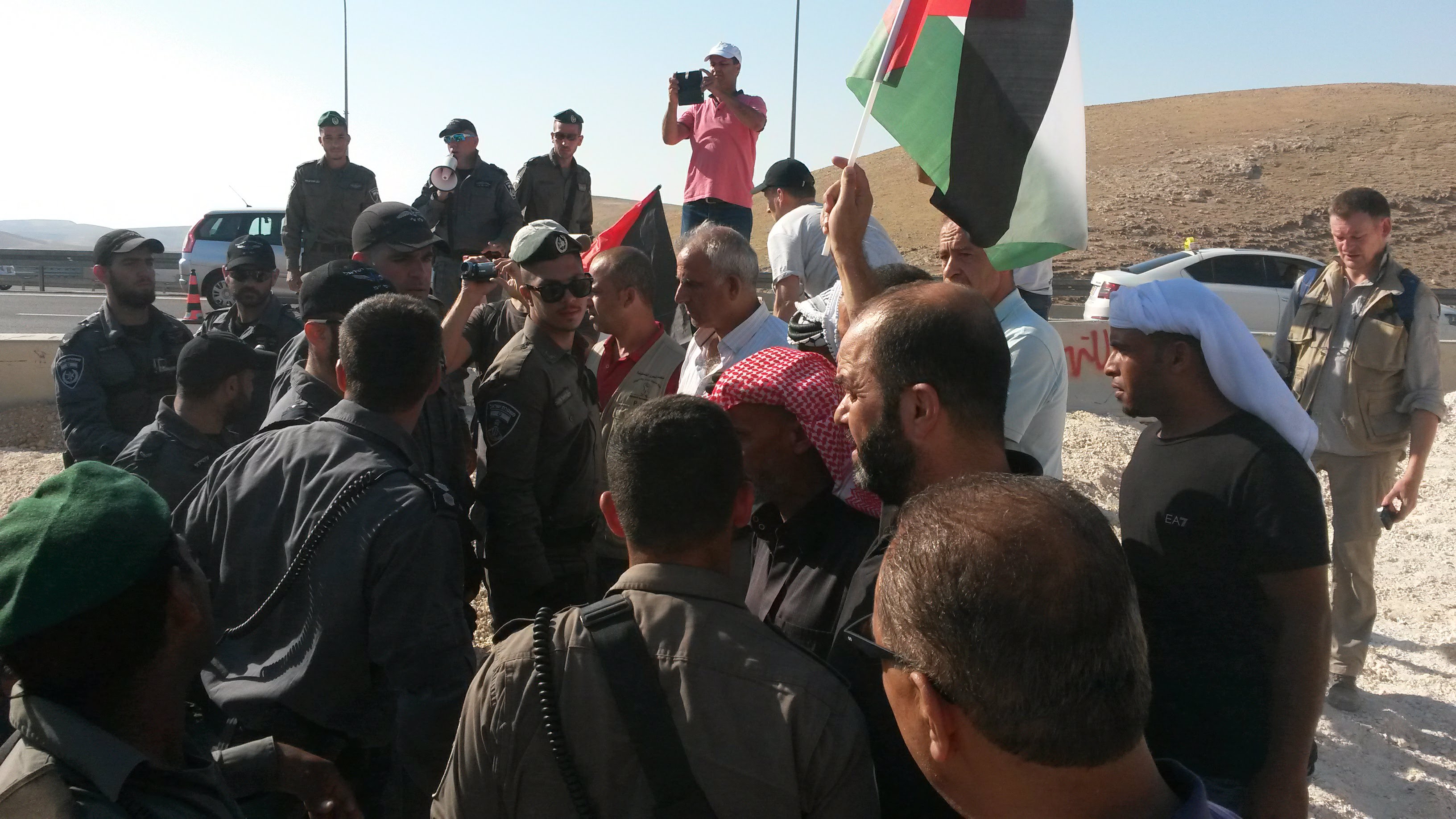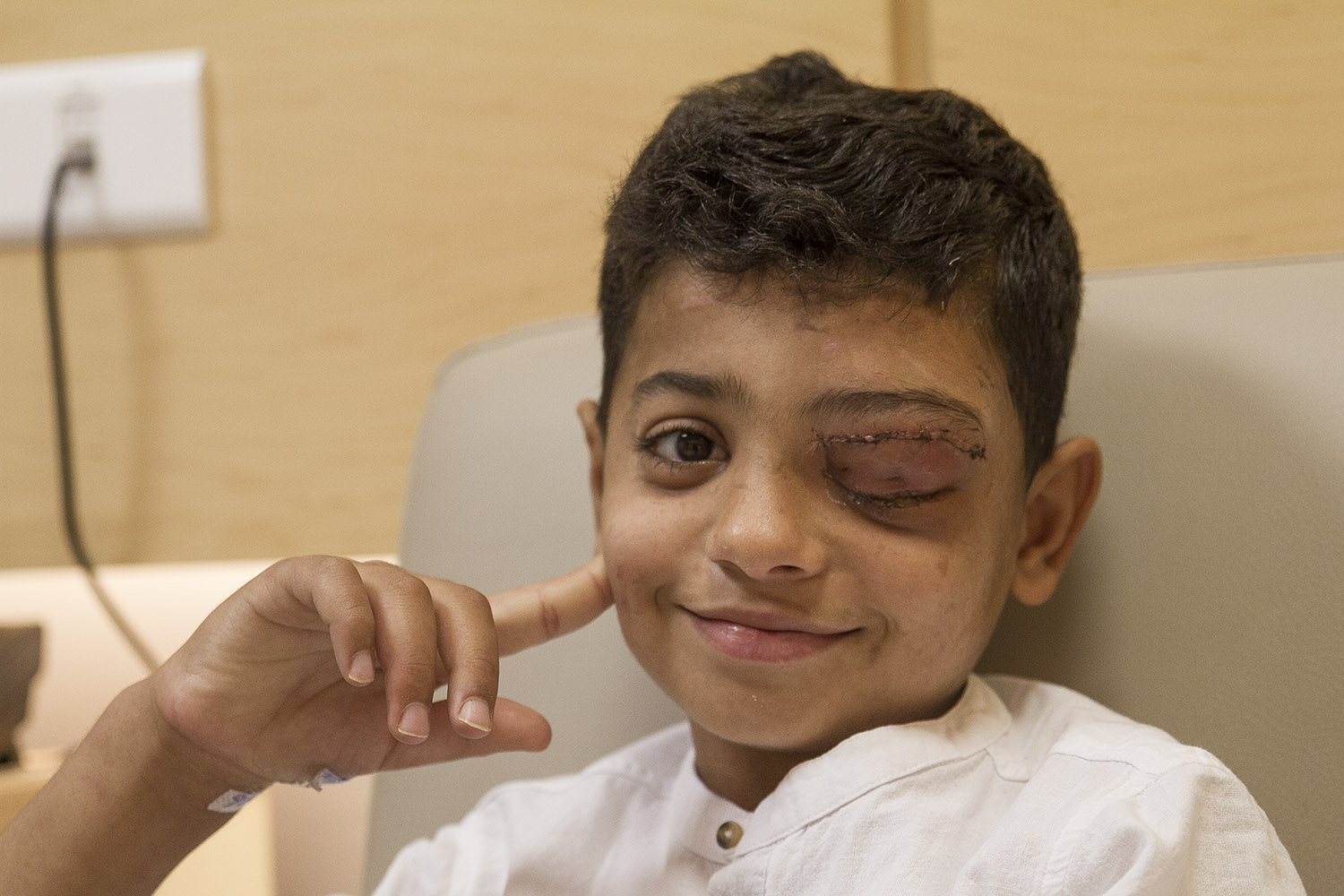Tag: Israeli violence
-
Experiencing arrest in Khan al-Ahmar, threatened by demolition by Israeli forces
26th July 2018 | Steve Dhiman, International Solidarity Movement | Khan al-Ahmar, occupied Palestine An ISM volunteer describes his experience of being arrested and almost deported by Israeli forces On Wednesday, the 4th of July, I began training with the International Solidarity Movement, an organization where Palestinians and Israelis, Jewish people and Muslims work…
-
Israel begins demolition of Khan Al Ahmar and uses violence against peaceful protesters
International Solidarity Movement, Khan Al Ahmar, Palestine Friday 6th June This week, Israeli forces began preparing for the demolition of the Bedouin village Al-Khan Al-Ahmar, in between Jerusalem and Jericho in the West Bank of Palestine. They met village residents and protesters with extreme violence on Wednesday and Thursday in an attempt to clear the…
-
“I just want him to be a normal boy again’: Gaza family appeal for urgent help to support treatment of 11 year old Mahmoud who was shot in the face by an Israeli sniper
Mahmoud Sawalhi is an 11 year-old boy from Gaza who was shot in the head and the shoulder with live ammunition by an Israeli sniper on the 14th May Great Return March protests. A bullet passed through his eye and out of the top of his head, and he lost both his eye and…



